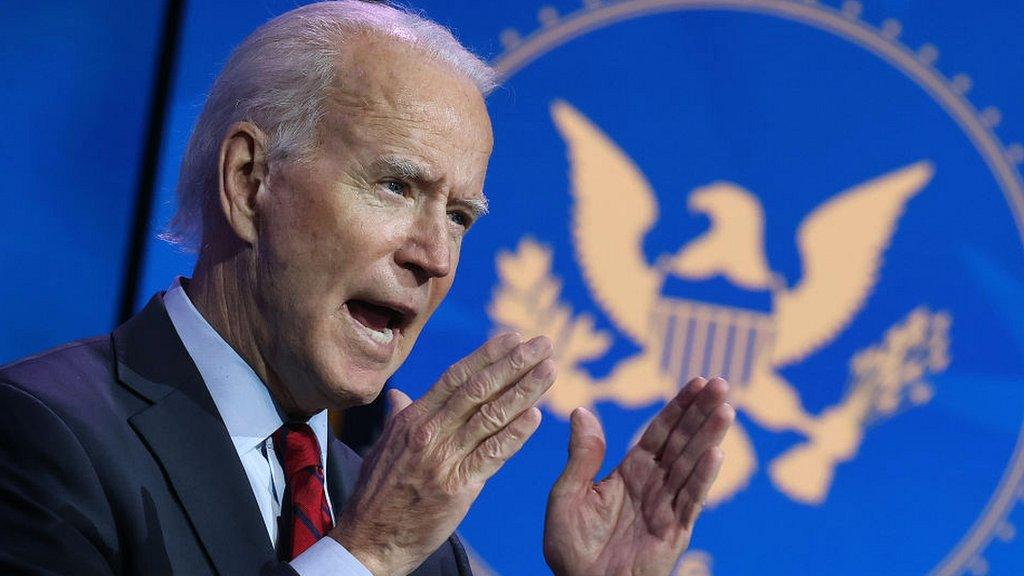Uganda election: Bobi Wine 'fearful for life' after Museveni win
- Published
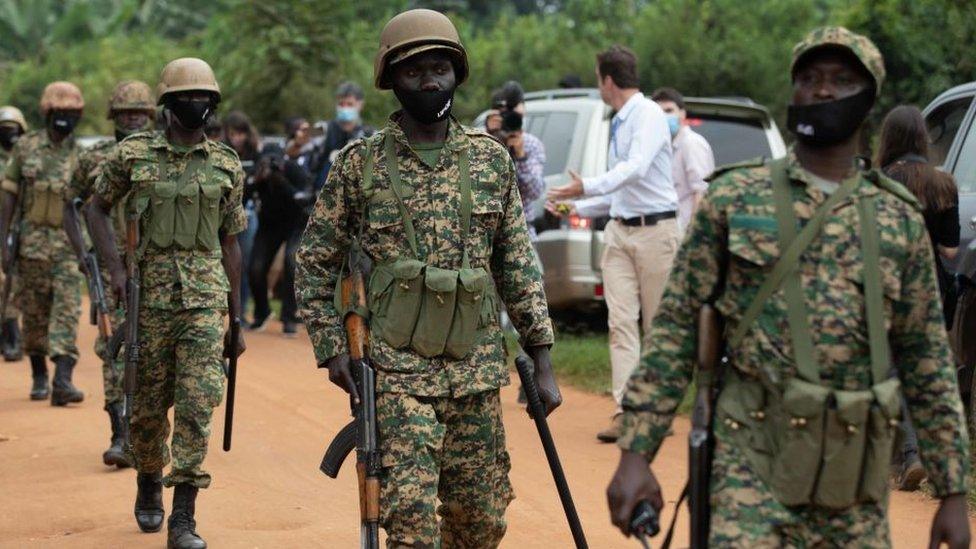
Soldiers have been seen near the home of opposition leader Bobi Wine
Uganda's main opposition presidential candidate Bobi Wine says his life is being threatened following Thursday's election which saw Yoweri Museveni win a sixth elected term.
The singer-turned-politician told the BBC that he rejected the results "with the contempt they deserve".
He alleged there had been a lot of irregularities but Mr Museveni called it Uganda's fairest ever vote.
Campaigning had been marred by violence in which dozens of people died.
Just ahead of voting day the government shut down the internet, a move condemned by election monitors.
They said confidence in the count had been damaged by the days-long cut. A government minister told the BBC on Saturday evening that the internet service would be restored "very soon".
What did Bobi Wine say?
In a phone interview with the BBC World Service, Bobi Wine, the stage name for 38-year-old Robert Kyagulanyi, said he was "worried about my life and the life of my wife".
He said he was not being allowed to leave his house which was surrounded by security forces.
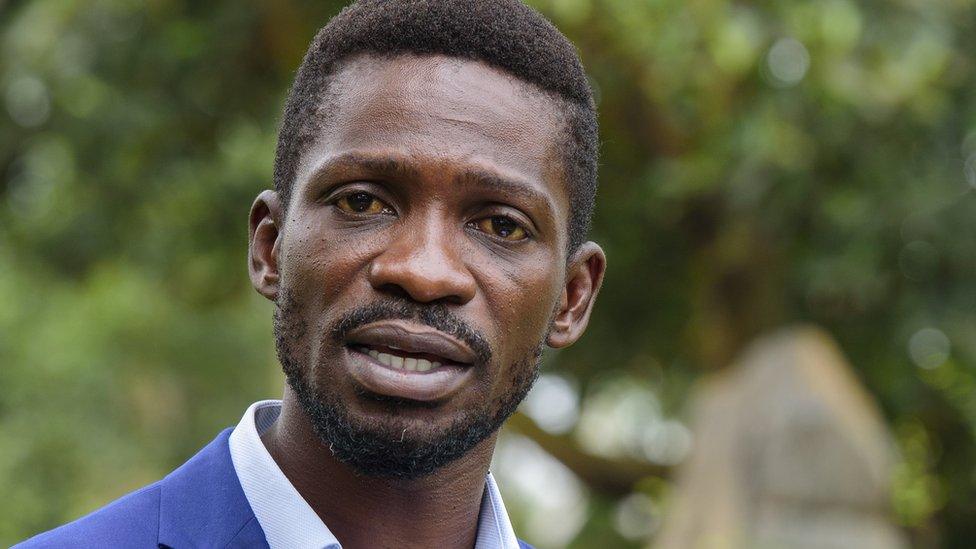
Bobi Wine says he represents the younger generation
"Nobody is allowed to leave or come into our house. Also, all journalists - local and international - have been blocked from accessing me here at home," he said.
Addressing what his party, National Unity Platform, might do now, he told the BBC that "all options are now on the table including but not limited to peaceful protest" but he stressed that he was not calling for violent insurrection.
The opposition candidate earlier said: "I will be happy to share the videos of all the fraud and irregularities as soon as the internet is restored."
What did President Museveni say?
The result gives President Museveni, 76 and in power since 1986, five more years as president.
Speaking after being declared the winner, he rejected claims of fraud describing the election as likely to be "the most cheating-free election" in the country's history.
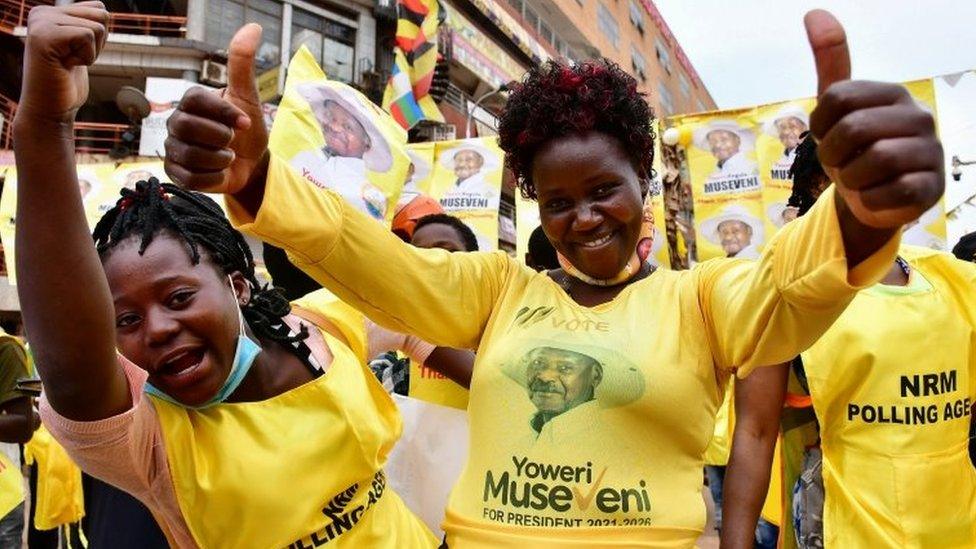
Museveni supporters celebrated in the capital Kampala after the poll results were announced
Mr Museveni also alleged that another country in the region had sent "agents to come meddle in our politics".
"Foreign meddling will not be tolerated, we do not want foreigners interfering in our affairs. If foreign interference were a source of wealth then Africa would be the richest country in the world."
The president's supporters came out on to the streets of the capital, Kampala, on Saturday to celebrate his victory.
What have monitors said?
Issuing the final result on Saturday, the Electoral Commission said the vote had been peaceful, with a turnout of 57% of the almost 18 million registered voters.
16 January 2021
5.85 millionvotes were won by Yoweri Museveni, according to the Electoral Commission.
3.48 millionvotes were won by Bobi Wine, his main rival, the commission said.
6elected terms as president for Museveni. Bobi Wine has vowed to provide proof of voting fraud.
2,000The number of observers deployed by the Africa Elections Watch coalition, which said they had observed irregularities.
But the EU, United Nations and several rights groups have raised concerns. Aside from an African Union mission, no major international group monitored the vote.
The AU has not yet commented.
Earlier this week the US - a major aid donor to Uganda - cancelled its diplomatic observer mission to the country, external, saying that the majority of its staff had been denied permission to monitor polling sites.
Ugandan voters: We want peace
The US state department said the vote occurred in "an environment of intimidation of fear"., external
In a statement Africa Elections Watch, a coalition of civil society groups, which said it had 3,000 election observers in Uganda, said that the vote did not "meet the threshold of a democratic, free, fair, transparent and credible electoral process".

Bobi Wine will continue to play a role
By Catherine Byaruhanga, BBC News, Kampala
President Yoweri Museveni has seen off countless challengers during his three decades in power - helped along by constitutional changes, which have allowed him to continue running for office.
His assurances of security and economic stability continue to win him votes. It's easy to underestimate how much the memories of decades of civil war and a failed state still cast a shadow over this country.
Bobi Wine casts a lonely figure - in his home on the outskirts of Kampala.
His key advisers have either been arrested or are in hiding. Nevertheless, he will continue to play a key role in Uganda's politics.
His National Unity Platform is expected to be the biggest opposition party in parliament. What he says and does can inspire millions both in Uganda and across Africa where youthful political movements are taking hold.

Who is Yoweri Museveni?
Mr Museveni, who came to power on the back of an armed uprising in 1986, stood as leader of the National Resistance Movement (NRM).
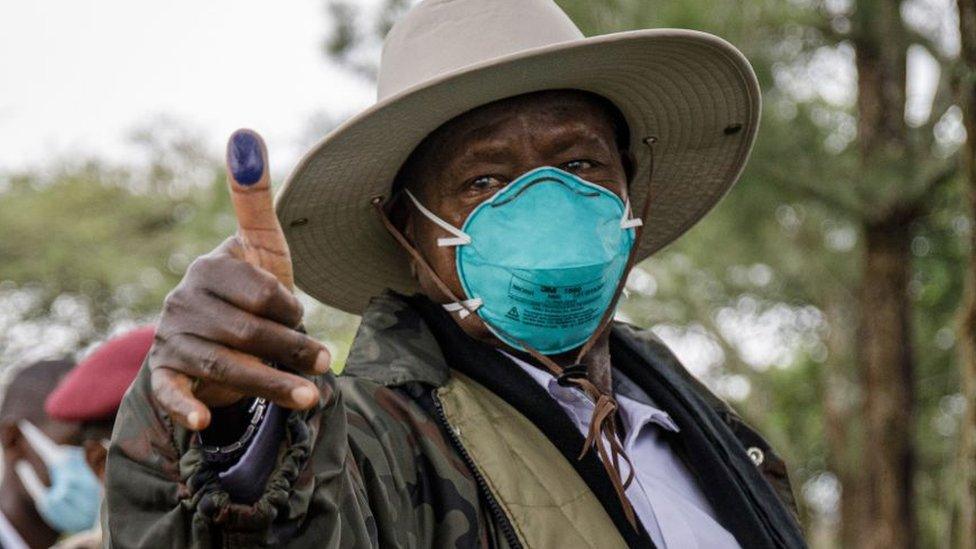
President Yoweri Museveni says he represents stability
He has long been depicted to Ugandans as a liberator and peace bringer.
But he has managed to maintain his grip on power through a mixture of encouraging a personality cult, employing patronage, compromising independent institutions and sidelining opponents, says the BBC's Patience Atuhaire.
Who is Bobi Wine?
The reggae star is known by his supporters as the "ghetto president".
His party campaigns for basic needs like improving access to healthcare, education, clean water and justice.
Over the last two decades Bobi Wine's musical output has been filled with songs about these issues and they have inspired a fervent following.
He grew up in Kampala's Kamwokya slum where he went on to build his now world-famous recording studio.
Related topics
- Published12 January 2021
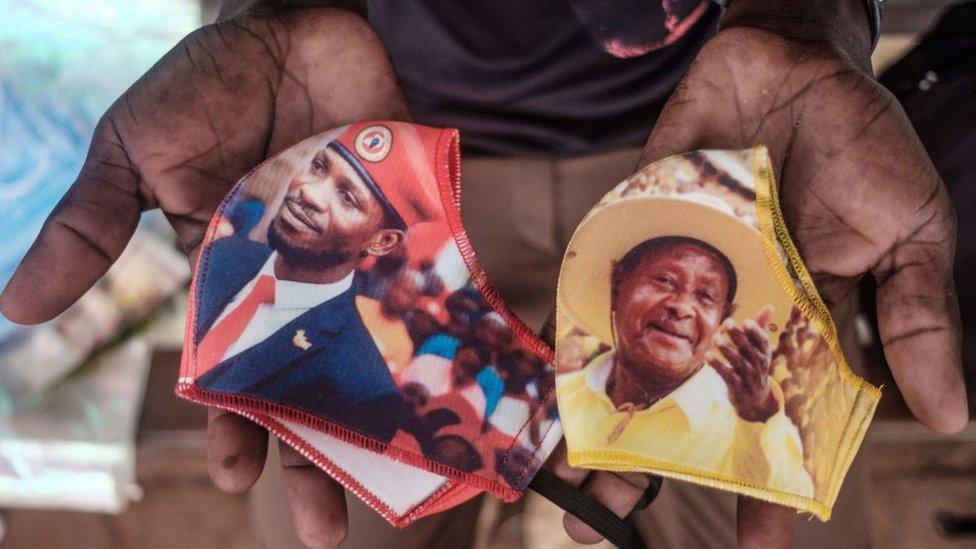
- Published22 February 2021
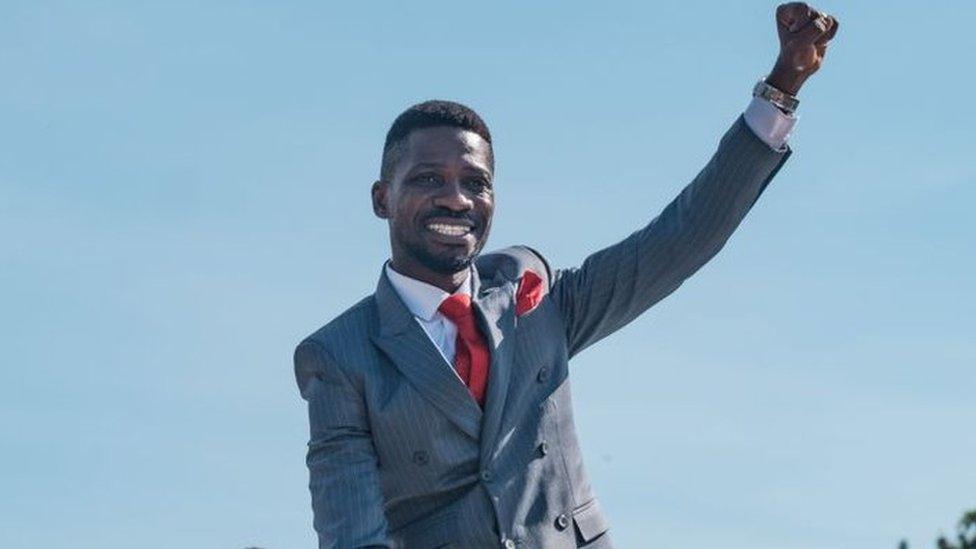
- Published10 May 2021
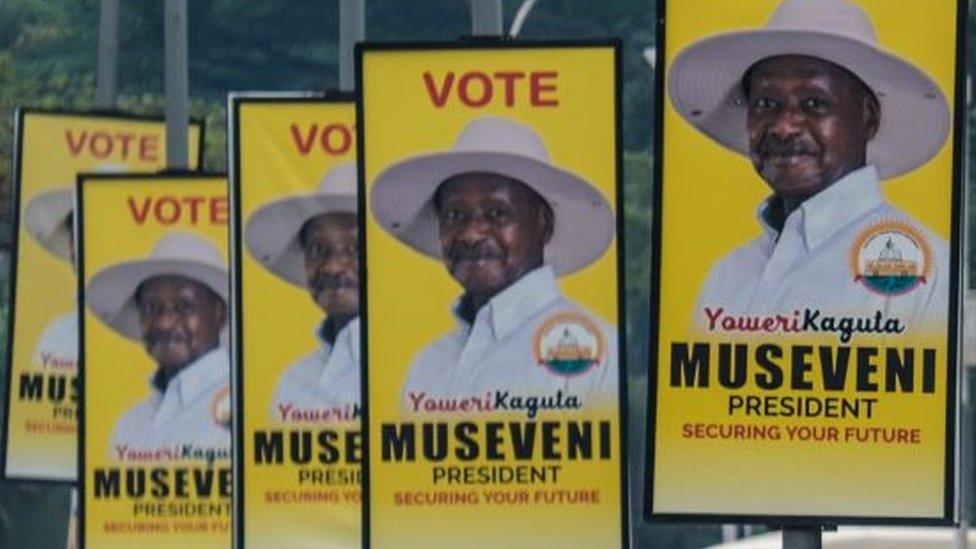
- Published20 December 2020
